The first time I stumbled across Maple & Fitz, there was nothing on Mortimer Street. Back then, you would only use it as a pathway to the Berners Tavern restaurant at The Edition or to head on over to the culinary destination that is Charlotte Street. Back then, Adria Wu was pretty much a team of one, fresh from graduating from Le Cordon Bleu, anxiously counting on the buzz of Charlotte Street to trickle over. Don’t be fooled though – her healthy deli was most certainly one of the best-kept healthy eating spots in town, but now that’s been taken up a notch.
Simply put, Mortimer Street has become something of a wellness destination. Psycle is there, Detox Kitchen too and Adria is part of a new generation of women, who have turned up the heat in the kitchen, proved their salt and made it their mission to change the way we think about healthy food. The day we meet, Maple & Fitz is heaving. The crowd is a mixture of locals who clearly eat there for lunch every day with a mix of trendy, Lululemon-clad types passing by. She first showed up on the culinary scene as a cuisine chef at White & Brown, a cool but casual eatery on Kingly Street, shortly after graduating from the prestigious Le Cordon Bleu. Still relatively unknown but desperate to flex her creative skills, she left after a few months to take up nutrition and finally get to work on opening up a restaurant of her own.
In a casual black oversized tee, jeans and trainers, she’s not dressed to make an entrance, but as she advances over to me from the wooden staircase in one corner of the restaurant, she is a mid-morning apparition: smiley and poised, with a waterfall of glossy hair, with a bottle of freshly made green juice in her hand.
The most obvious thing about Adria is her love of food and the growth of her mini empire reflects that. The gluten, dairy and sugar free recipes she’s created have made helped make Maple & Fitz a destination, despite all of the competition. It’s all about introducing people to things in a way they’re going to enjoy, she tells me, pushing a slice of gluten free banana bread my way.
She’s sunk all of her money into this project; friends and family pulled together to help her raise the bulk of the money she needed after her business partner pulled out just before the launch and she’s candid when I ask her about her journey in getting here. You see, despite always having a deep affinity for food, she actually started off as an industrial engineer and later a management consultant before giving it all up, to move to London and set up shop. It’s been a tumultuous journey. She knows that it feels like to move cities and feel alone, all of the sake self-development and she’s the first to admit that changing careers requires being poor and completely changing your lifestyle. Would she change any of it? Of course, not. When it comes to changing careers, she’s done it not once, not twice but three times and all with huge success. Ahead, she breaks down her love of food, why she chose to go the sensible path and what it takes to set up on your own.
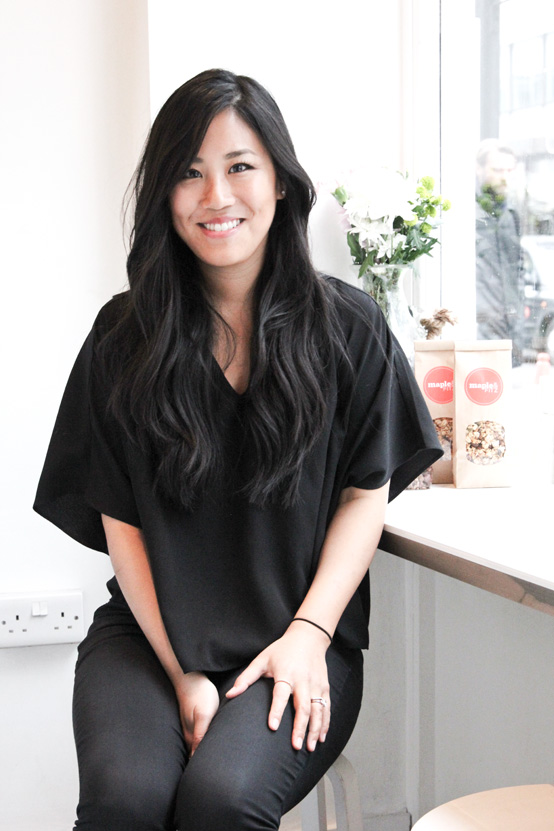 I grew up in Canada. My parents immigrated to Canada from China in the seventies so I was born there. Growing up, my mum was always into fresh food. The thing is with Canada, in the winter it’s really bad but in the summer the weather is good so we grew as much produce as we could. I would help my mum grow tomatoes and potatoes. Even back then, my mum used to make her own green pasta, which, considering it was the eighties, was way ahead of the curve. My sister and I would kick and scream but my mum was such an advocate of eating good, fresh food. We’d always go to the butchers and the fishmongers. I guess that’s part of being an immigrant family – my parents weren’t used to the concept of going to a supermarket and buying everything packaged and pre-cut. Again, as a kid, I don’t think I appreciated all of that. As a teenager, like everyone, I had a weird relationship with food. I struggled a bit to find my identity but I was also that kid who would work out and play sports so I could treat myself and eat good food. I’ve always been that way. I know what my body needs to stay healthy but I’ve always loved food and loved eating.
I grew up in Canada. My parents immigrated to Canada from China in the seventies so I was born there. Growing up, my mum was always into fresh food. The thing is with Canada, in the winter it’s really bad but in the summer the weather is good so we grew as much produce as we could. I would help my mum grow tomatoes and potatoes. Even back then, my mum used to make her own green pasta, which, considering it was the eighties, was way ahead of the curve. My sister and I would kick and scream but my mum was such an advocate of eating good, fresh food. We’d always go to the butchers and the fishmongers. I guess that’s part of being an immigrant family – my parents weren’t used to the concept of going to a supermarket and buying everything packaged and pre-cut. Again, as a kid, I don’t think I appreciated all of that. As a teenager, like everyone, I had a weird relationship with food. I struggled a bit to find my identity but I was also that kid who would work out and play sports so I could treat myself and eat good food. I’ve always been that way. I know what my body needs to stay healthy but I’ve always loved food and loved eating.
I studied industrial engineering in my undergrad because I’ve always wanted to understand how things work and how things are connected. It’s a lot about human interaction with machines and different processes so it’s all about how you can build things that make people’s lives better, which I find really fascinating. I can’t lie, it was a really hard four years. In hindsight, I don’t know whether it was all worth it considering what I’m doing now. I did it because I had every intention on pursuing it as a career once I graduated. I wanted to work on things like hospital or airport efficiency. I ended up working as an engineer in a placement for a year and a half as part of my course. I enjoyed it but I think I just struggled with the culture of that world. Even though Canada is such a progressive country, in manufacturing it’s still very male-dominated so as a young, female engineer who’s a visible minority, it was just a really hard environment. The year of my course was really tough. It was all the hardcore units like algebra, calculus and electric circuits. Thinking about it now still makes me shudder. After my year’s placement, I decided that I didn’t want to take it any further and started looking into other options.
Rather than doing a complete U-turn, I started looking into careers that would bridge some of the things I’d already learned so I started looking into management consulting and strategy development. It’s an industry where firms help companies solve problems. As an engineer, you’re working close to the ground but as a management consultant I was working on vision development and things like growth problems. It was hard to get into it because how do I convince someone that I make stuff but I may know something about business too? I was already good at numbers and could do mental maths, so that helped but it was definitely a lot of work trying to convince people to hire me. Luckily, I graduated in 2006 when the economy was still doing well. I always think that had I graduated at any other time, I probably would never have been hired but the stars aligned for me. I’m not super spiritual but I do believe that sometimes luck has to be on your side. You can bust your ass but sometimes it just boils down to luck. I ended up getting a job at a big firm as a junior analyst. Because the economy was doing well, I was 23 years old and always travelling, expenses covered. We were dining at some of the most incredible restaurants in the world so that exposed me to food I’d never been able to eat before. For the first time, I was able to appreciate Michelin star fine dining and serious French cuisine like foie gras and old bottles of Saint-Emilion wine.
After three years doing that, I decided to move to the Middle East with my then boyfriend, now husband. We started working with the government to improve the welfare of migrant workers. We had both been working as consultants in America for a while so wanted a change. There’d been a big issue in the Middle East about the way South Asian workers were being treated. If I showed you photos of the way people were being treated, you’d be shocked and appalled. It was just terrible. So we went there to see if there were any opportunities to work with the government to improve things, but also selfishly to make some money. It was a triple bottom line. It’s not that we went there trying to do something completely non-profit. It was always a question of, what can we do to try and save the world but also further our own ambitions. So we ended up working with the government to build a migrant residence with all of the services they didn’t have. Before, there’d be twenty people in one room, the same room that they would cook, wash, sleep and eat in. The first residence we build was for 8,000 people and food was a big part of that. I was preparing 24,000 meals a day. It’s crazy. We started small with just my husband and I, and over a few years our team just grew and grew.
After a few years I decided to go back to working as a management consultant. I worked for the big financial company, Zurich, for a couple of years and basically helped them grow their Middle Eastern practice while my husband maintained our business. But after four years, we just wanted to move back. At the time I’d started to get even more obsessed with food – not just eating but the whole entertaining side of things. I started throwing more dinner parties at my house and I just loved it. So I had a decision to make: should I go back into consulting, decide to do something in food or try and find a role that brought fitness and working out into it because that’s something I love too? Ultimately, food was the winner so I applied for Le Cordon Bleu here in London and it was the best year of my life.
Le Cordon Bleu originally started in France and now has schools all around the world. It’s a classic French culinary school so all of the techniques are very old and very French. It’s very regimented and specific. French cuisine is so interesting but because not many other cuisines have been as well documented. That’s why it’s so popular – it’s not that it’s necessarily better than anything else; they’ve just documented everything. Every region has its own bread or way of making sauces. So does many other places but they just haven’t documented it in the way the French have.
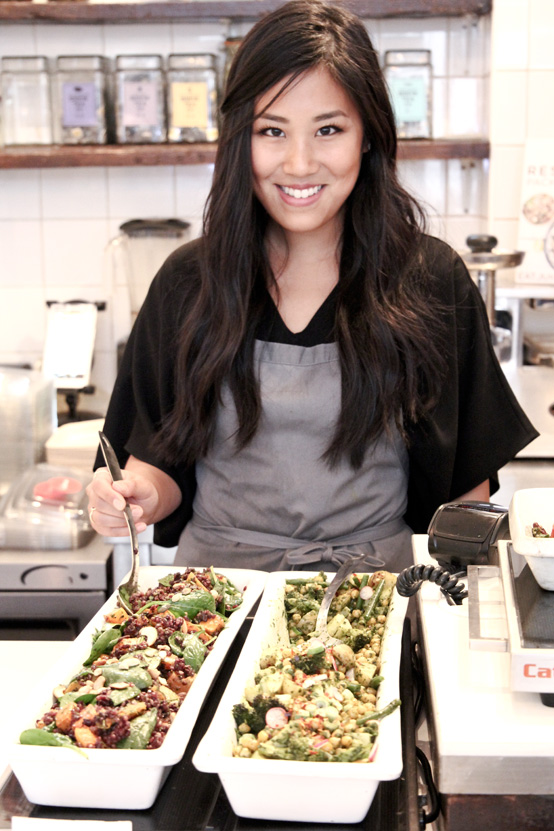 There was a real mix of ages in my class from 18 year olds who had just come from school to people in their late 50s. I definitely considered myself an ‘adult learner’ so when the younger ones were trying to skip classes to go drink, I was the adult learner in the front who was really keen! I’d quit my job and changed my life and given up too much not to take it seriously and I absolutely loved it. Sometimes we’d start class as early as 7.30am and wouldn’t finish until 8.30pm at night. We’d have all of these incredible Michelin star chefs come in and do demos of how to prepare something and then we’d go back to our work stations with our own tools and our own knives and we’d have to prepare it ourselves. When I went home, all I wanted to do was cook more because I’d learnt something new and on the weekends, I’d always have friends over. It was a great way of having catching up with people without spending money so I’d use them to experiment with dishes I’d learnt that week. Even during the week, I’d wake up early just so I could test a new recipe I’d been thinking about. As much as I loved being a consultant, I never felt the way I do when I’m working in a kitchen. I enjoyed what I did and I probably felt like I should have loved it because it was a respected career but it wasn’t an obsession. Cooking became everything to me.
There was a real mix of ages in my class from 18 year olds who had just come from school to people in their late 50s. I definitely considered myself an ‘adult learner’ so when the younger ones were trying to skip classes to go drink, I was the adult learner in the front who was really keen! I’d quit my job and changed my life and given up too much not to take it seriously and I absolutely loved it. Sometimes we’d start class as early as 7.30am and wouldn’t finish until 8.30pm at night. We’d have all of these incredible Michelin star chefs come in and do demos of how to prepare something and then we’d go back to our work stations with our own tools and our own knives and we’d have to prepare it ourselves. When I went home, all I wanted to do was cook more because I’d learnt something new and on the weekends, I’d always have friends over. It was a great way of having catching up with people without spending money so I’d use them to experiment with dishes I’d learnt that week. Even during the week, I’d wake up early just so I could test a new recipe I’d been thinking about. As much as I loved being a consultant, I never felt the way I do when I’m working in a kitchen. I enjoyed what I did and I probably felt like I should have loved it because it was a respected career but it wasn’t an obsession. Cooking became everything to me.
When I started I was really nervous. I was just like, I’m just going to quit my job, go to school and see what happens. It was a huge move. I owe everything to my husband. He has been the backbone for me throughout this process. He’s always been so supportive. As much as I love to think of myself as a strong independent woman who doesn’t need a man in my life, I don’t know how I would have done it without him. He would always say, “do what makes you happy and we’ll figure the rest out.” My friends and family have been really supportive but he’s been the one who’s really encouraged me to just go for it. Part of life is taking risks. You can think about it for years but if you don’t take risks, you’re never going to know what the possibilities are. I’m lucky that I can take risks because I don’t have children who depend on me. And besides, I took that risk having a strong back up plan. In the back of my mind, I knew that if worse came to worse, I had great relationships with people in my old industry so I’d be fine. Okay, I might be set back a year but in the grand scheme of things, it’s not a big deal. A lot of people thought I was crazy, especially my parents. They couldn’t understand why I’d leave a great consulting job to be a chef. I think people were shocked more than anything else but all of my friends understood because I was always the one who just loved working out and eating. That was always what defined me outside of work.
When I finished the course, I went and worked at a restaurant in Kingly Court called White & Brown. Getting a job is easy for most people after leaving Le Cordon Bleu. The foundation that it gives you means you go can straight into working as a chef in a fine dining Michelin star restaurant. People respect you because they know that the course is incredibly strict and the chefs are tough. I’ve cried so many times but working in a professional kitchen is tough so that type of training is important. A lot of the younger people on my course went into Michelin fine dining where you’re working 20-hour shifts on the weekend but they could do because they don’t have responsibilities. I definitely don’t have as much energy as I had in my twenties.
A friend of a friend introduced me to the owners of the restaurant at White & Brown. In that type of kitchen you can either be a cuisine chef or a pastry chef so I chose to work as a cuisine chef. The menu was based around organic free-range eggs and chicken so every dish has either egg or chicken in it, hence White & Brown. It’s really cool. The whole vibe is casual dining but a lot of love has gone into the menu and the food but at an affordable price, which is why I really loved it. The fact that they serve purely organic food really resonated with me but I loved the fact that they still serve alcohol and brownies for dessert so there was still a balance. Because it was new, I was given quite a lot of opportunities to create some of my own dishes and be creative. Had I gone to work somewhere like a Jamie’s Italian, that would never have happened. If you’re at a Jamie’s, you’re not allowed to deviate from a set thing, which I totally understand because that’s what you need for a business like that to succeed. I was at White & Brown for a couple of months and loved it but the starting salary was minimum wage so it was tough. I kept asking myself how I could marry the creative cooking side of things but actually have a decent standard of life so that’s why I decided to create something of my own.
I’ve always been into fresh and healthy food but I realised that I had no training in nutrition. I’d always read labels and my mum taught me a lot. She ended up having cancer so became even more conscious about what we were eating but I felt like I needed to do a course to learn the fundamentals. I did a short nutritional course just to supplement what I already knew about food. During that time I started brainstorming what my vision of a healthy food destination would look like and what kind of dishes I’d serve. I started off with a blog, just as a place to post my recipe ideas. It was called Maple & Miso: maple because it’s sweet and Canadian; Miso because it’s savoury and taps into my Asian roots. It was a trial to see if my recipes had legs and started getting lots of traction. Not long after, I started looking into locations, ironing out at the concept and the ethos, and started thinking about how the hell I was going to fund this thing. It’s been stressful but I always try to remind myself that I’d doing this to be happy and hopefully be able to bring other people happiness.
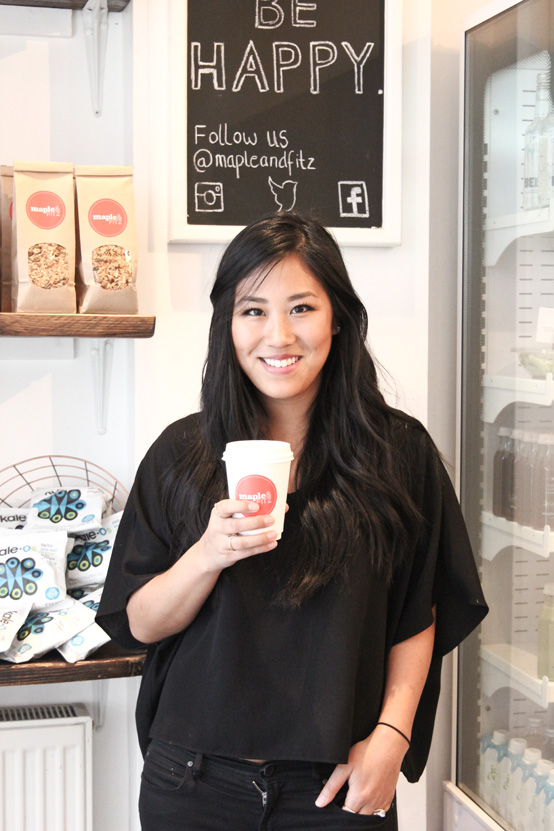 It took a year from the idea stage to the shop being complete. Generating money was definitely the hardest part. My business partner pulled out at the last minute and while I had savings of my own, it just wasn’t enough. I was in tears and freaking out, worrying how I was going to be able to do it all on my own but my friends and family stepped up and helped me. Even friends from high school invested money and said they believed in me and wanted to support me and gave big chunks of what they could. It went from ‘oh my God, this thing is going to fail because my partner abandoned me’ to, ‘my friends and family are amazing and the shop is finally open’.
It took a year from the idea stage to the shop being complete. Generating money was definitely the hardest part. My business partner pulled out at the last minute and while I had savings of my own, it just wasn’t enough. I was in tears and freaking out, worrying how I was going to be able to do it all on my own but my friends and family stepped up and helped me. Even friends from high school invested money and said they believed in me and wanted to support me and gave big chunks of what they could. It went from ‘oh my God, this thing is going to fail because my partner abandoned me’ to, ‘my friends and family are amazing and the shop is finally open’.
I’ve definitely taken risks in my career but it hasn’t always been easy. In my first few months in Dubai, I’d cry because it was just so lonely. We had no friends, I missed home and working with my boyfriend at the time was brilliant but we fought. It wasn’t great. There was so many times where I wanted to give up and go home. But each time things like that have happened in my life, something has always told me not to give up just yet. It’s definitely all paid off in the end.
If you’re starting a new business or changing careers and working your way up again, you really do need to be prepared not to have money. Everyone underestimates how expensive it is to survive in a big city when you don’t have a strong income. When I moved here for school, I essentially had no income at all. If my shoes had a hole in them, I’d try and fix them. I just had to make things work. My life completely changed. There was no more travel, no more going to fancy places to eat. Every time my friends would go out for dinner, I’d always meet them afterwards for a drink because I didn’t want them to feel bad for the fact that they had a regular income. Every winter my friends go skiing. I haven’t been skiing in four years because I can’t afford it. That’s why I love talking to other people who have had a similar experience. Sometimes you need that reminder that you’re not going crazy and you’re not alone. People have been so supportive since the shop opened. When I heard Lily [Simpson] was opening up The Detox Kitchen across the road, I was obviously nervous but she’s been so good to me. She’s been like a mentor. Every time I’ve had questions or needed advice, she’s been more than happy to talk things through with me, give me advice and share what’s going on in her shop too. At the end of the day, we’re both in the same industry but she’s not competitive. She always wants to help.
Adria was shot in the Maple & Fitz store on Mortimer Street by Naomi Mdudu.

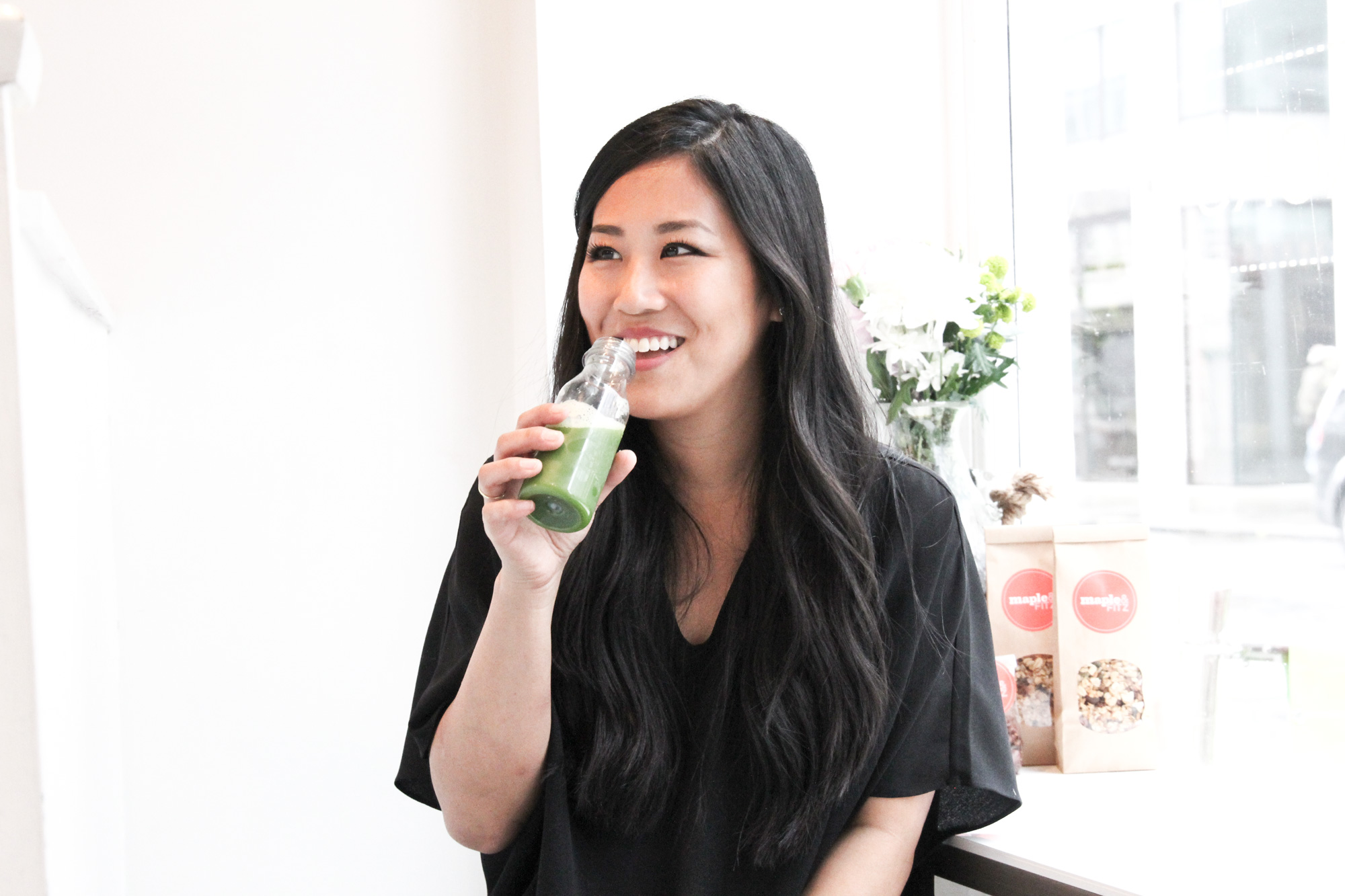
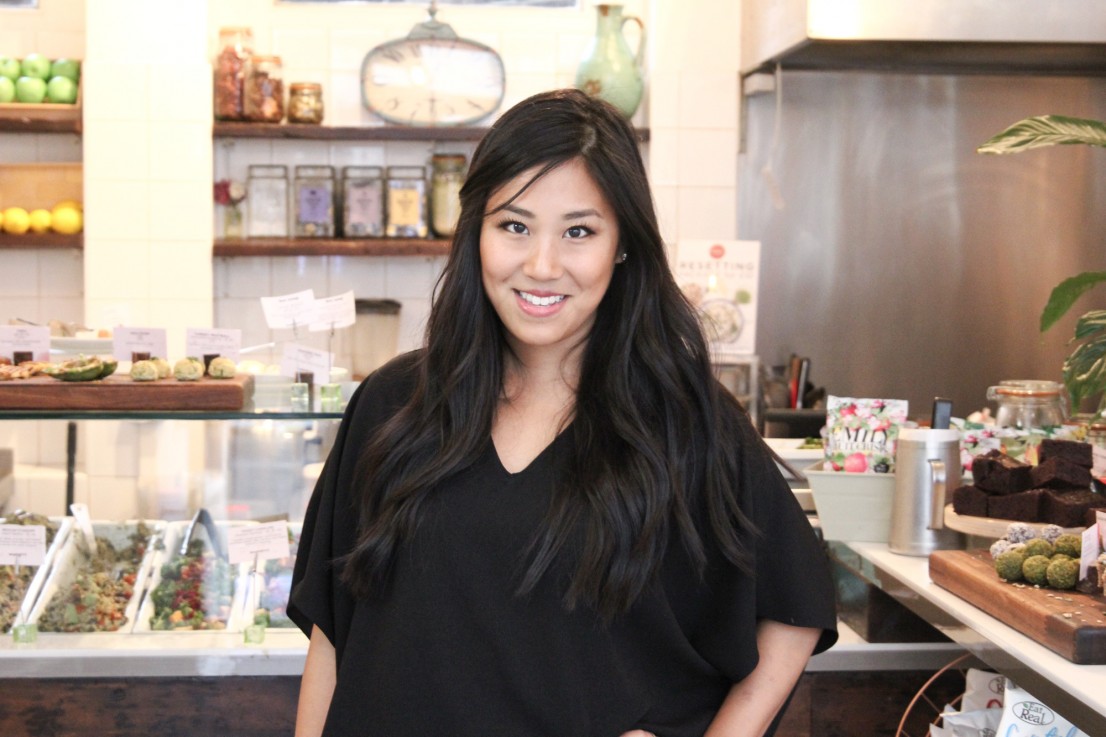
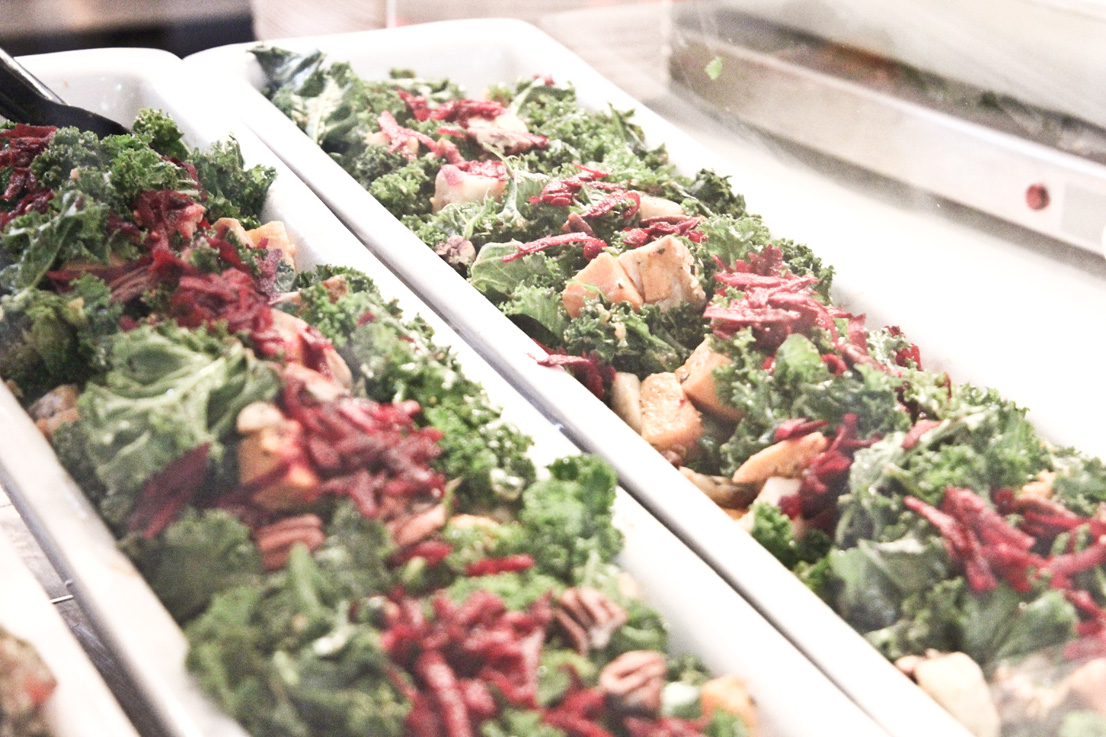
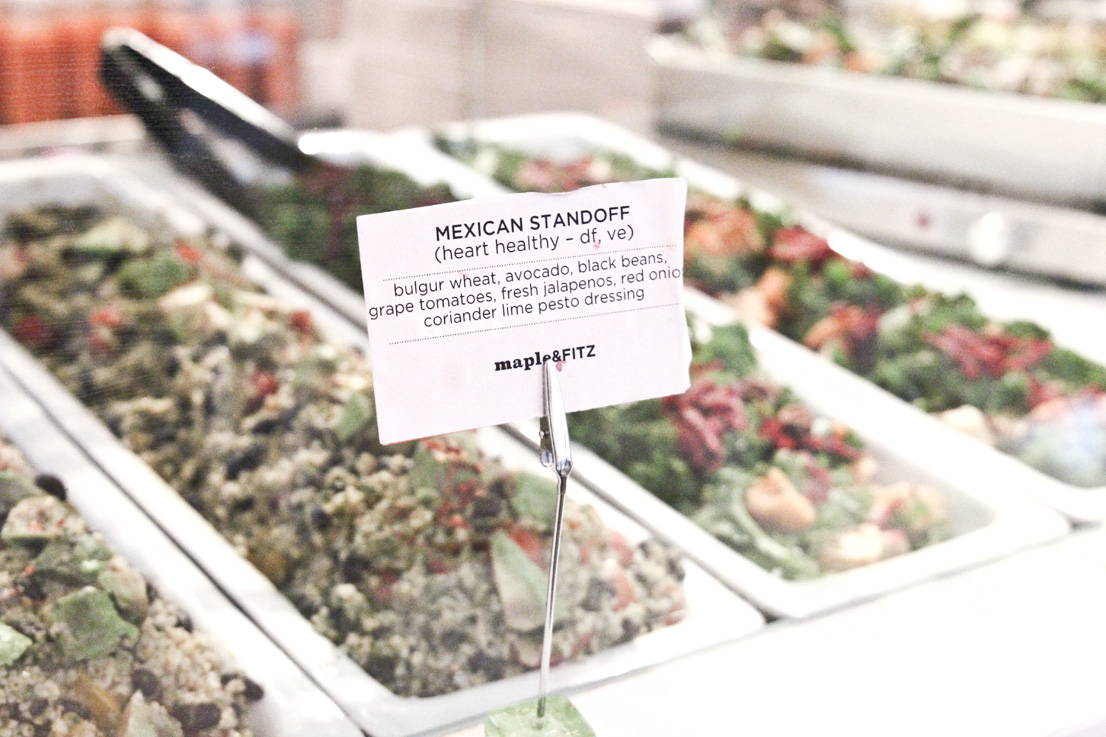
Amazing story. Very inspiring.
xx
http://thestylecrusader.com
Love her journey and story. Great feature!
So pleased you enjoyed it Polly!
Inspiring story…
Hi do you have any job vacancies. at your cafe?by the way i love vegan food.
Kind Regards Lorna Rice